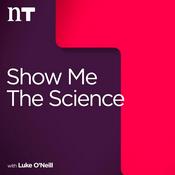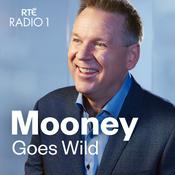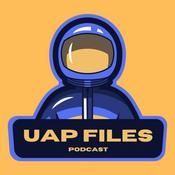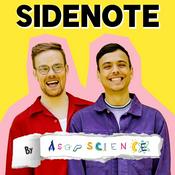96 episodes
- In this episode, we discuss the problems associated with vague concepts in psychological science. We talk about the jingle-jangle fallacy, the trade-off between broad concepts and more precise concepts, if we should generate databases of conceptual definitions, and how the reward structures can get in the way of specifying concepts clearly.
Aikins, H. A. (1902). The principles of logic. H. Holt and Company. https://www.loc.gov/resource/gdcmassbookdig.principlesoflogi00aiki/
Chalmers, D. J. (2025). What is conceptual engineering and what should it be? Inquiry, 68(9), 2902–2919. https://doi.org/10.1080/0020174X.2020.1817141
Gerring, J. (1999). What Makes a Concept Good? A Criterial Framework for Understanding Concept Formation in the Social Sciences. Polity, 31(3), 357–393. https://doi.org/10.2307/3235246
Hirsch, P. M., & Levin, D. Z. (1999). Umbrella Advocates Versus Validity Police: A Life-Cycle Model. Organization Science, 10(2), 199–212. https://doi.org/10.1287/orsc.10.2.199
Sartori, G. (1970). Concept Misformation in Comparative Politics. The American Political Science Review, 64(4), 1033–1053. https://doi.org/10.2307/1958356
Thorndike, E. L. (Edward L. (with University of California Libraries). (1904). An introduction to the theory of mental and social measurements. New York : Science Press. http://archive.org/details/theoryofmentalso00thor
Truman Lee Kelley, (1927). Interpretation of education measurements. World book company. http://archive.org/details/bwb_P9-AQI-186
APA Dictionary of Psychology: https://dictionary.apa.org/ - In this episode, we continue our discussion of scientism. We talk about 6 problems with scientism that have been raised by Susan Haack, if we should feel bad about having some sympathy for scientism, and whether the contributions of all scientifici disciplines deserved the label of 'knowledge'. Enjoy.
References:
Haack, S. (2012). Six Signs of Scientism. Logos & Episteme, 3(1), 75–95. https://doi.org/10.5840/logos-episteme20123151
Brown, N. J. L., Sokal, A. D., & Friedman, H. L. (2013). The complex dynamics of wishful thinking: The critical positivity ratio. American Psychologist, 68(9), 801–813. https://doi.org/10.1037/a0032850
Peels, R. (2023). Scientism and scientific fundamentalism: What science can learn from mainstream religion. Interdisciplinary Science Reviews, 48(2), 395–410. https://doi.org/10.1080/03080188.2022.2152246
de Ridder, Jeroen. “Science and Scientism in Popular Science Writing.” Social Epistemology Review and Reply Collective 3, no. 12 (2014): 23-39. https://social-epistemology.com/2014/11/03/science-and-scientism-in-popular-science-writing-jeroen-de-ridder/
Meehl, P. E. (2004). Cliometric metatheory III: Peircean consensus, verisimilitude and asymptotic method. The British Journal for the Philosophy of Science, 55(4), 615–643.
Mizrahi, M. (2017). What’s so bad about scientism? Social Epistemology, 31(4), 351–367. https://doi.org/10.1080/02691728.2017.1297505
Hayek, F. A. (1952). The Counter-Revolution of Science: Studies on the Abuse of Reason. Glencoe, Illinois: The Free Press.
Rulkens, C. C. S., Peels, R., Stols-Witlox, M., Meloni, S., Lechner, I. M., & Bouter, L. (2025). The attribution of two portraits of Rembrandt revisited: A replication study in art history. Humanities and Social Sciences Communications, 12(1), 1347. https://doi.org/10.1057/s41599-025-05523-2 - In this two-part episode, we delve into the topic of scientism. Is science the best way to generate knowledge? Or are we giving too much deference to science if we believe this? In this first part, we discuss what scientism is, what - if anything - is wrong with scientism, and whether it is bad to be a scien-ti-sim-ist?
References:
Haack, S. (2012). Six Signs of Scientism. Logos & Episteme, 3(1), 75–95. https://doi.org/10.5840/logos-episteme20123151
Brown, N. J. L., Sokal, A. D., & Friedman, H. L. (2013). The complex dynamics of wishful thinking: The critical positivity ratio. American Psychologist, 68(9), 801–813. https://doi.org/10.1037/a0032850
Peels, R. (2023). Scientism and scientific fundamentalism: What science can learn from mainstream religion. Interdisciplinary Science Reviews, 48(2), 395–410. https://doi.org/10.1080/03080188.2022.2152246
de Ridder, Jeroen. “Science and Scientism in Popular Science Writing.” Social Epistemology Review and Reply Collective 3, no. 12 (2014): 23-39. https://social-epistemology.com/2014/11/03/science-and-scientism-in-popular-science-writing-jeroen-de-ridder/
Meehl, P. E. (2004). Cliometric metatheory III: Peircean consensus, verisimilitude and asymptotic method. The British Journal for the Philosophy of Science, 55(4), 615–643.
Mizrahi, M. (2017). What’s so bad about scientism? Social Epistemology, 31(4), 351–367. https://doi.org/10.1080/02691728.2017.1297505
Hayek, F. A. (1952). The Counter-Revolution of Science: Studies on the Abuse of Reason. Glencoe, Illinois: The Free Press.
Rulkens, C. C. S., Peels, R., Stols-Witlox, M., Meloni, S., Lechner, I. M., & Bouter, L. (2025). The attribution of two portraits of Rembrandt revisited: A replication study in art history. Humanities and Social Sciences Communications, 12(1), 1347. https://doi.org/10.1057/s41599-025-05523-2 - In this episode, we discuss "Is the scientific paper a fraud?" by Sir Peter Medawar.
Shownotes
Medawar, P. (1999). Is the scientific paper a fraud? Communicating Science: Professional Contexts, 27–31.
Ross, G. R., Meloy, M. G., & Bolton, L. E. (2021). Disorder and downsizing. Journal of Consumer Research, 47(6), 959–977.
The footnote reads: "Like many consumers, we were inspired by Marie Kondo to declutter our homes—and also to conduct this research! Note that our work is not a test of the KonMari method per se but rather an investigation of ideas—on dis/order, waste aversion, and selection/rejection (as these quotes illustrate)—inspired by her writing and the surprising lack of research on downsizing."
Karataş, M., & Cutright, K. M. (2023). Thinking about God increases acceptance of artificial intelligence in decision-making. Proceedings of the National Academy of Sciences, 120(33), e2218961120.
Richard Feynman on finding new laws
More Science podcasts
Trending Science podcasts
About Nullius in Verba
Nullius in Verba is a podcast about science—what it is and what it could be. It is hosted by Smriti Mehta from UC Berkeley and Daniël Lakens from Eindhoven University of Technology. Our logo is an homage to the title page of Novum Organum, which depicts a galleon passing between the mythical Pillars of Hercules on either side of the Strait of Gibraltar. The title of the podcast comes from the motto of the Royal Society, set in typeface Kepler by Robert Slimbach. Our theme song is Newton’s Cradle by Grandbrothers.
Podcast websiteListen to Nullius in Verba, The Infinite Monkey Cage and many other podcasts from around the world with the radio.net app

Get the free radio.net app
- Stations and podcasts to bookmark
- Stream via Wi-Fi or Bluetooth
- Supports Carplay & Android Auto
- Many other app features
Get the free radio.net app
- Stations and podcasts to bookmark
- Stream via Wi-Fi or Bluetooth
- Supports Carplay & Android Auto
- Many other app features


Nullius in Verba
Scan code,
download the app,
start listening.
download the app,
start listening.




































